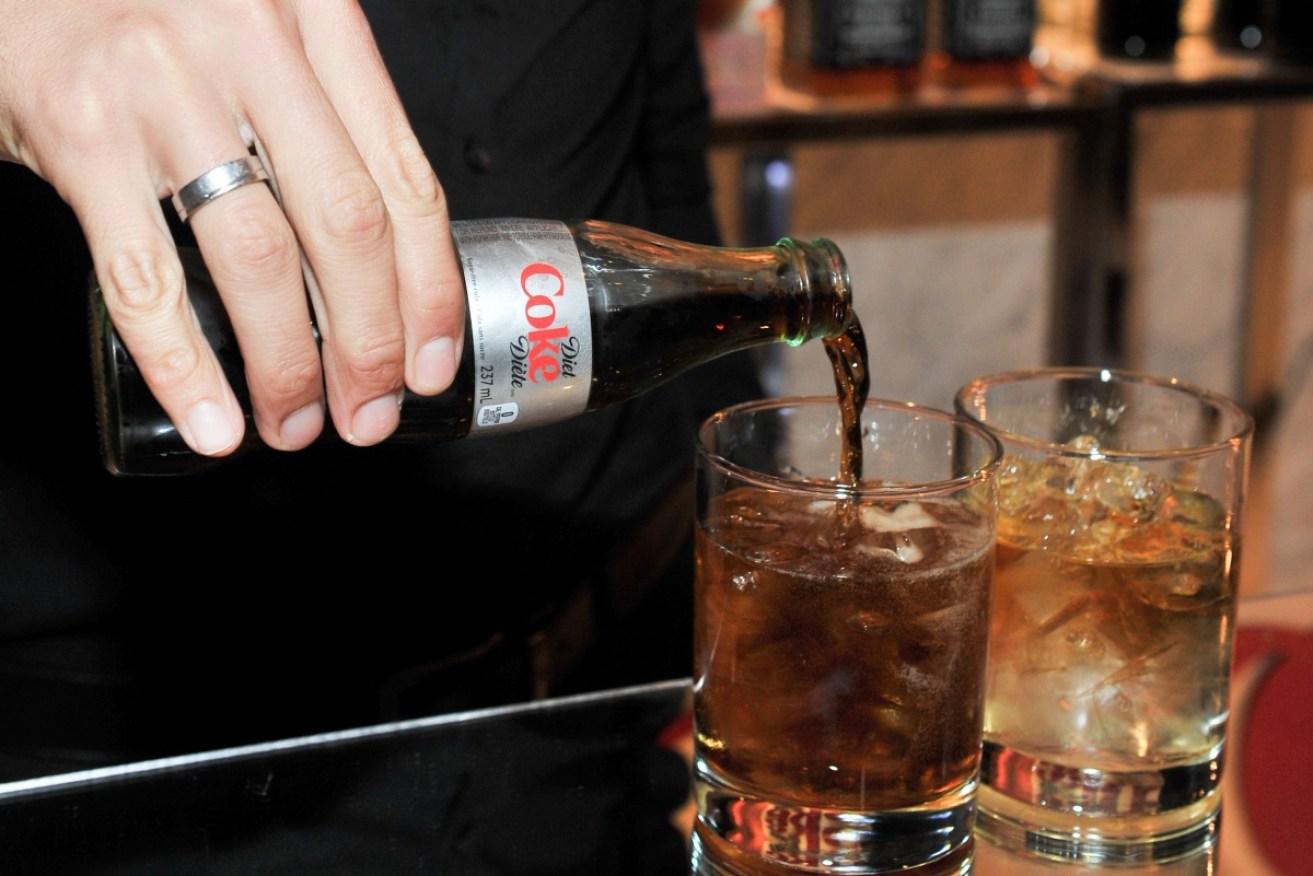Are artificial sweeteners really bad for us?

Aspartame could pose a health risk, but possibly no greater than any other possible carcinogen on the market. Photo: Getty
Myths abound about artificial sweeteners – they supposedly give us cancer and brain tumours and more.
These theories have little scientific backing. For example, the Cancer Council of Western Australia has soundly rebutted the cancer link on its website.
• Bad wrap: is bread really that bad for you?
• Hayfever hacks: how to beat pollen allergies
• This is why your attempts to lose weight always fail
But a scary new theory about sugar substitutes could make you give up Diet Coke for good.
Research from Israel published in Nature suggests guilt-free sweets may be doing the complete opposite of what we hoped – they may be making us fat.
Sugar free or fattening?

Sugar-free soft drinks are a big source of artificial sweeteners. Photo: Getty
A team of researchers at the Weizmann Institute of Science has found that artificial sweeteners may be messing with our gut bacteria and triggering obesity.
The most common sweeteners are aspartame, saccharin and sucralose, all of which are many hundreds of times sweeter than sugar.
One look at the sky-high sugar content in fizzy drinks and it is easy to see why these fake sweeteners make a lot of dietary sense. According to Harvard University, a can of Coke contains 10 teaspoons of sugar, and the average sports drink has five teaspoons.
In the Israeli study, the researchers tested what happened when they gave plain water, sugared water and artificially sweetened water to different groups of mice.
At the end of a week, the sweetener-fed mice found it much more difficult to digest glucose compared to those who had drunk water or sugar. While the mice did not actually gain any weight, difficulty processing glucose is a risk factor for obesity and is characteristic of diabetes.
To test if the explanation was gut microbes, the sweetener-fed mice were given antibiotics to kill their microbes, which fixed the problem. When the gut microbes of sweetener-fed mice were put into normal mice, they also became glucose intolerant.
The researchers then asked a group of human volunteers who did not normally eat or drink artificially sweetened food to consume them for a week. Many – but not all – of the volunteers had begun to develop glucose intolerance at the end of just seven days.
‘Treat with caution’

Health organisations say chemical sweeteners are safe. Photo: Getty
This sounds convincing, but a health body in the US has strongly disputed the findings, saying they are unreliable and at odds with previous research.
The findings should be “interpreted with caution”, said President of the Calorie Control Council Dr Haley Curtis Stevens, because of small sample sizes, the use of massive overdoses of sweeteners “at many times the typical intake”, and a reliance on mice rather than humans.
More than 40 studies have found artificial sweeteners to be a safe tool for managing calorie intake that does not contribute to obesity or diabetes, Dr Stevens said.
But the Harvard School of Public Health says the final verdict on whether artificial sweeteners can help us cut back on calories is still out. Some studies show that regular consumption of artificially sweetened drinks reduce calorie intake and promotes weight loss or maintenance, while other research shows no effect, and some studies even show weight gain, according to Harvard.
Despite this, many leading health organisations in the US, including the Academy of Nutrition and Dietetics, the American Diabetes Association and the American Heart Association, support the use of low-calorie sweeteners.
Diabetes NSW accredited practicing dietitian Shannon Samuel told The New Daily that artificial sweeteners are “very useful” for calorie restriction, especially for those with a sweet tooth, but should be used in moderation.
“For example, if someone uses three or four teaspoons of sugar in their tea or coffee, we would probably recommend they start reducing their sugar intake or consider an alternative like sweeteners,” Ms Samuel said.
Chemical sweeteners are proven to be safe, she said, although the Israeli study possibly warrants further research in humans.
On the question of safety, the Dietitians Association of Australia has said the artificial sweeteners sold in our supermarkets are extensively tested and proven to be safe, except for people diagnosed with the very rare genetic disorder phenylketonuria (clearly described on warning labels).
So are artificial sweeteners safe? The majority say yes, but as for whether or not they help or harm your waistline, it could be a case of watch this space and see what future studies find.








